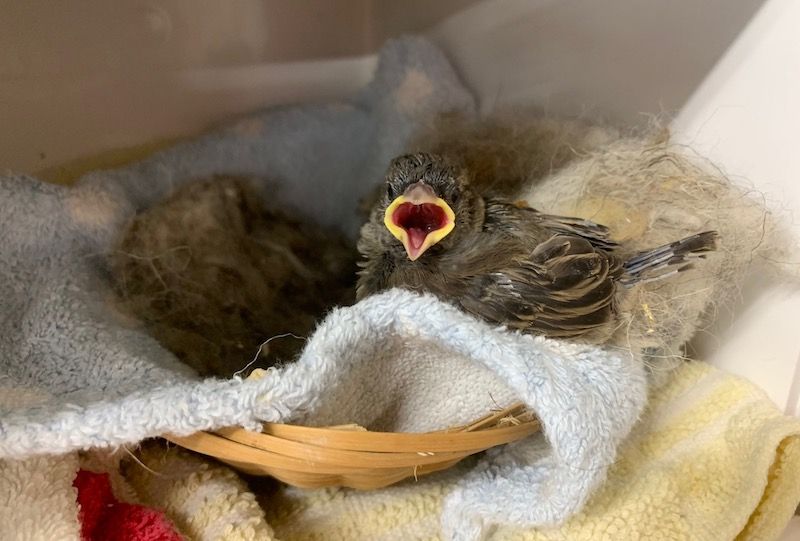

The GSPCA has seen a sharp increase in the number of baby birds needing hand rearing after being found or rescued.
Where possible, GSPCA Animal Care Assistant Nicolle Morgan said baby birds are best left in the wild to be rehabilitated by their parents.
“Very recently we have received a few birds nests full of baby birds varying from pinkies as in newly hatched to fledglings, mainly due to disruption from gardening activities.”
“A baby bird has a greater chance of survival in the wild than being hand-reared as they learn how to forage for food and fend for themselves from their parents.”
Ms Morgan urged people to check their hedges and trees very carefully before trimming them or cutting them down, as there could be birds nesting in them.
After hatching, GSPCA Manager Steve Byrne said most birds take around two weeks to learn how to fly. “It is about this time that you find a young bird out of its nest, as it is probably a fledgling.
He continued: “Fledglings are almost fully feathered, able to walk, run and hop on to low branches, and will try to hide in undergrowth where they are fed by their parents.
“Parent birds are not usually far away and are probably collecting food but will not return until you have gone. Within a day of leaving the nest, fledglings can usually fly enough to keep up with their parents and escape predators.
“Please remember to only move them, or encourage them to move, a short distance to safety if they are in immediate danger.”
If a bird is sick, people are asked take it to their nearest vet, animal shelter or simply call the GSPCA on 01481 257261 for further guidance.
“Never try to return nestlings to their nests as this may disturb the other babies,” warned Mr Byrne.
“Never try to rear nestlings yourself, as they need specialist care if they are to survive and the staff at the GSPCA have years of experience and training.
"We are very lucky to have intensive care units at the Shelter to help raise these very fragile young, but it is never easy with the number of feeds and the fact that many arrive injured or very cold."
“Due to the numbers of baby birds our intensive care units are full and we are having to use other facilities to raise the many young that have come into our care.”
Comments
Comments on this story express the views of the commentator only, not Bailiwick Publishing. We are unable to guarantee the accuracy of any of those comments.